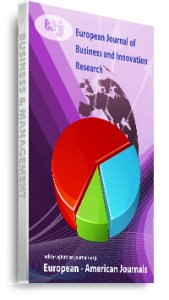Citation: Ayodele A. Otaiku (2022) Competitiveness Analytic of Nigeria and Singapore | National Productivity and Economy, European Journal of Business and Innovation Research, Vol.10, No.1, pp. 67-111
Abstract: Competition power of a country can simply be defined as the ability to compete relative to its rivals and where Singapore and Nigeria were case studies. The effective policies to increase the level of prosperity and how to translate information about specific strengths and weaknesses across the many factors that drive competitiveness was the crux of the study. The competitiveness analytic identify uncertainties (more raking competitiveness metrics); seek alternative framing of problems; build hybrids (objects such as indicators or policy formulation); and human capacity to link knowledge to action for national productivity and country’s share of world markets for its products and services, provide its residents with a rising standard of living and a high employment on a sustainable basis was the resultant impacts of competitiveness. Value results from a total effort, rather than from ‘one isolated step’ in the process for all indexes of competitiveness. Singapore had better competitiveness index than Nigeria with global ranking as the most competitive nation in the world, 2020.The crux of 21st century competitiveness ranking should focus on the unification of competitiveness indicators and the development of ‘integral competitiveness fundamentals that, can capture the traditional and emerging indicators like ‘Climate changes’,‘Pollution’,‘Cyber security’ and ‘Hybrid warfare’ was accentuated as spatial polysingularity framework for the future study of competitiveness.
Keywords: Competitiveness, Development, Entrepreneurship, Innovation, Networking, Nigeria, Singapore, spatial polysingularity

